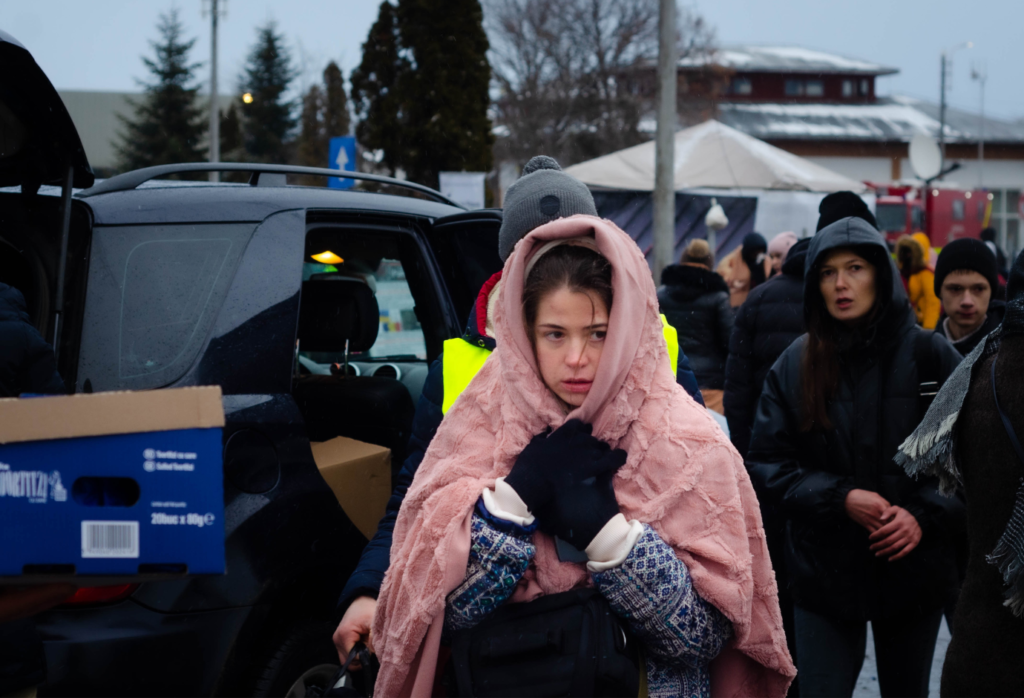In Ukraine, internally displaced people including marginalised groups such as women-run households, Roma people, LGBTQIA+ people, and people with disabilities are facing a disproportionate degree of hardship as the war enters its eleventh week.
A new Rapid Gender Analysis by UN Women and humanitarian agency CARE International has revealed that the health, safety, and access to food for women and minorities has been jeopardised by the war, which has so far claimed the lives of over 3,000 civilians and forced millions of refugees to flee their homes.
The analysis is based on surveys and interviews conducted with residents across 19 regions in Ukraine in early April.
Roughly fifty per cent of respondents said that their mental health has been impacted by the war, as access to humanitarian aid and services continues to be inaccessible for many.
Members of the Roma communities revealed they have experienced high levels of discrimination, both in their daily struggle and in access to humanitarian aid.
Gender roles are also drastically shifting in the country of over 44 million, with women reportedly taking on new jobs to make up for the lost family income, as men take up arms in the conflict.
With the conflict forcing many women into leadership roles in their families and communities, performing vital roles in the local humanitarian response, they continue to be excluded from participating in administrative decision-making processes and formal politics.
Women’s unpaid duties continues to increase as schools across the country close, and a high demand for volunteer work in the absence of men.
One female respondent of the survey revealed the humanitarian needs of displaced people, locals, and households were mostly driven by women.
“Women do most of the work,” the respondent said. “They drive, provide hospitals and locals with medication and food, they care about their disabled relatives and children.”
UN Women’s Executive Director, Sima Bahous, said that the humanitarian response in Ukraine must take into account and address “…the different needs of women and girls, men and boys, including those that are furthest left behind.”
“This timely analysis provides the evidence of those needs, and their urgency,” Bahous said.
“Women have been playing vital roles in their communities’ humanitarian response. They must also be meaningfully involved in the planning and decision-making processes to make sure that their specific needs are met, especially those related to health, safety, and access to livelihoods.”
The report also indicated that as the war continues to effect unemployment rates, women will likely be pushed into “unprotected informal sectors of the economy and increase poverty.”
Secretary General of CARE International, Sofia Sprechmann Sineiro believes the report will allow the organisation to “consult directly with affected populations in order to accurately identify what specific needs different groups of people have, and how to best meet them.”
“What we are hearing from the people of Ukraine is that certain groups—such as those with disabilities, Roma and other ethnic minorities, single mothers, and unaccompanied children—are each in need of different forms of protection and assistance,” Sineiro said.
“To keep our response effective and relevant, such groups must be consulted and prioritised across the aid ecosystem as this truly devastating situation continues to evolve.”
The report concludes with a series of recommendations for governments, the international community, and other organisations to implement.
These include giving cash to assist most vulnerable and at-risk women, supporting women-led and women’s rights organisations engaged in the response through provision of financial resources, providing displaced people with options for vocational training and livelihoods, and making sexual and reproductive health and maternal, newborn, and child health care a priority, including the clinical care of sexual assault survivors and ensuring access to contraception.
You can read the list of recommendations made by the report here, as well as the entire analysis.


